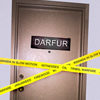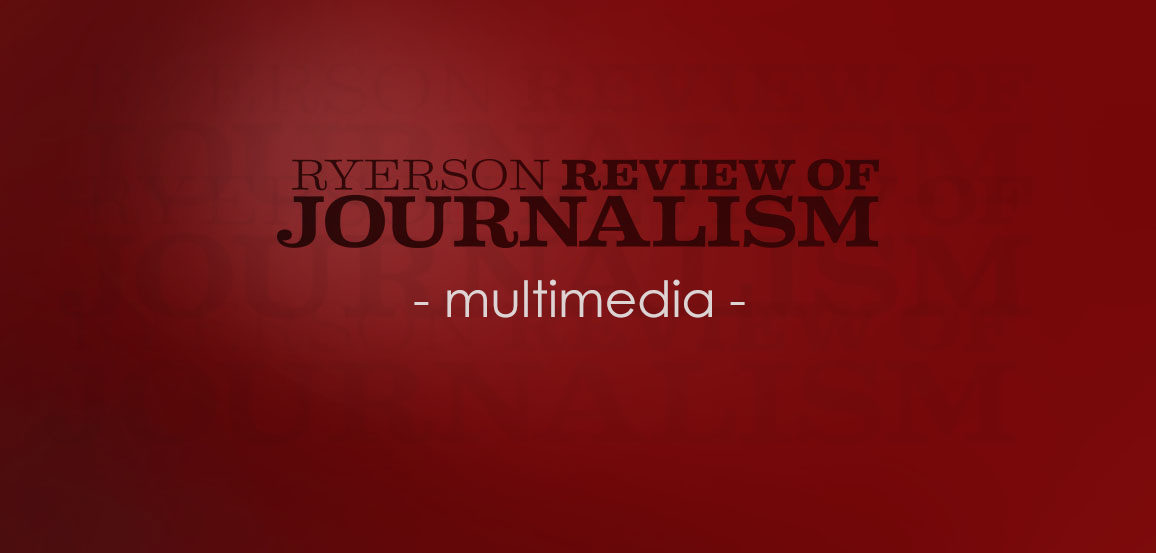Now Rwanda looms in the background. The mass murder of civilians that began three and a half years ago in Darfur, an area in western Sudan the size of France, has been described as “Rwanda in slow motion” and “the world’s worst humanitarian crisis” for the past two years.
Compared to the Rwandan genocide, the war in the Congo – or even the 21-year, north-south war in Sudan, in which two million died – the crisis in Darfur has grabbed the world’s attention.
But for all the coverage, people still don’t know much about the ongoing genocide. Atrocities approved by a brutal Sudanese government based in the capital, Khartoum, have elicited no concrete response from the West. Despite its many horrors, the tragedy of Darfur is just another African story – something about tribal warfare or civil war.
There are many good arguments for the lack of continued, insistent coverage, of course. They are the same reasons coverage was slow to start: cutbacks in foreign bureaus, the astronomical cost of having someone in every region of the world and the importance of other under-reported stories are all cited as explanations why no one focused on Darfur until 2004.
Committing enough coverage early on, in order to make the public aware that the implications are leading to genocide, is a numbers game. News outlets must justify spending tens of thousands of dollars on one region of the world over another. But at this point in the calamity, where systemic murders and rapes have become banal, it could be argued that western media have a responsibility to dig deeper to show the complexity of the crisis, so readers walk away with more than feelings of pity and hopelessness. After all, the West may have had a hand in fostering it.
• • •
For four years, Dr. Norman Epstein has been talking about Sudan to anyone willing to listen. Standing in a small classroom in late October, he prepares to speak to 12 volunteers at the Canadian Centre for Victims of Torture office in downtown Toronto. Epstein – along with Dr. Achol Dor, who is from southern Sudan – is co-founder of Canadians Against Slavery and Torture in Sudan. This is the second time he has come to talk about Darfur. A slender, middle-aged man, wearing grey slacks and a light blue shirt, Epstein draws a map of Sudan on the whiteboard and outlines Sudan’s colonial past.
Epstein starts in. The British, in collaboration with Egypt, gained control of Sudan in the 1890s. They favoured the north and marginalized western and southern tribes. As soon as they left in 1956, the north took power. In 2003, government militias, called janjaweed, were sent by the government to crush a rebellion in the west. But they did not seek out rebels. Instead, they systematically killed villagers and gang-raped women, under the direction of Khartoum. “The government knew the militias would rape and kill,” Epstein says.
In late 2003, refugees fleeing Darfur crossed the border into Chad. They told stories of attacks by Arab militias, villages burned to the ground, and murder and rape.
In spring 2004, Stephanie Nolen was the first Canadian journalist to reach the isolated area of Darfur. She slept in the dirt and reported on refugees in internally displaced persons camps. She reported on the end of the north-south war and the peace accord designed to distribute the south’s mineral wealth between Khartoum and the rebel Sudan People’s Liberation Movement in the south. But the deal ignored western Sudan.
Rebel groups in the west had also been fighting against the government, demanding to be included in the wealth-sharing arrangement. Many of the government’s soldiers were from Darfur and would not fight their kin. The regime then created a militia force, janjaweed, to suppress dissent in the west.
Epstein is frustrated with media coverage. Although he allows that it has been regular in the past two years, articles are often buried deep in the paper, and facts are not always updated. In March 2005, for example, Nolen reported more than 200,000 dead. The current figure is closer to 300,000, but the original number is repeatedly mentioned.
What is needed, Epstein argues, is relentless front-page coverage that would grab the attention of more politicians. “The media could be a moral catalyst for what could happen.”
The media could be, but they do not report exclusively on a single human rights issue. Any program consists of more than one issue per show, and Darfur could not and would not be covered every week. Rick MacInnes-Rae, senior correspondent/host for CBC’s Dispatches, says, “Media doesn’t prosecute a war,” so the most they can do is to “generate pressure, illuminate an issue.”
MacInnes-Rae says media has not a moral responsibility, but rather “an editorial responsibility” to provide continued coverage. Even with best efforts to fulfill that obligation, though, reporting from Darfur is more complicated than from Iraq or Afghanistan. Western Sudan is geographically remote, and government officials in Khartoum rein in journalists’ access with bureaucratic impediments.
• • •
In September 2004, United States Secretary of State Colin Powell announced that genocide was occurring in Darfur. The U.S. did not intervene, but its declaration got attention. “The word genocide caused the Sudanese government to get its back up,” says David McGuffin, a CBC journalist, “and made it more difficult for journalists to get in there and do their job.”
McGuffin traveled to Darfur in September 2006. He talked to women in refugee camps who told him they were raped as they ventured outside the camps to collect firewood. The suffering horrified him, but there was so much he wasn’t permitted to witness. “It’s almost impossible to see fighting,” he says. “The Sudanese military controls all your movement on the ground.”
CBC has been to Darfur seven times in the past two years – twice in the last five months. Brien Christie, foreign assignment editor, says it is a clear priority for CBC. “We’ve been shining a light on it,” he says. The first time, reporters slipped in through Chad for a short period as refugees were crossing from Darfur. Later they went through Khartoum, and again with then prime minister Paul Martin.
Securing a visa for Sudan takes weeks or months, according to McGuffin. Once he received access to Darfur, he had to report to a government office every day. While filming in El Fasher, McGuffin and his crew were arrested and detained for four hours. They were arrested again the next day, in the same place. Eventually they were let into the camps with a police escort, but they weren’t permitted to speak to anyone.
As the Sudanese government clamps down on journalists, it is even more difficult for them to get the truth out. McGuffin and his crew decided to stop dealing with them and instead embedded themselves within an African Union (AU) base. The five-year-old union of 53 African states promotes the socio-economic integration of the continent, but AU troops are under-funded and undermanned as they struggle to create security in the midst of violence. McGuffin’s crew was almost arrested again, but a member of the AU intervened.
There was “a looming sense that you were going to get arrested and kicked out” the entire time, McGuffin says, who also acknowledges that Darfur gets pushed off the editorial menu by other stories. In summer 2006, the news focused on the conflict and suffering in Lebanon, and Darfur slipped off the radar. “There was a chance this summer, but then Lebanon happened,” he says.
• • •
In August 2006, Allan Rock, Canada’s former ambassador to the United Nations, wrote an article in The Globe and Mail arguing, “Despite the current preoccupations in the Middle East, we must remember that urgent needs elsewhere have not gone away. Our influential voice should be raised now, in a renewed effort to save the many lives being lost each day in Darfur’s tragic conflict.”
There is a general understanding that the government of Sudan is responsible, but there hasn’t been much analysis of the regime itself or why nothing seems to change. James MacKinnon, a freelance journalist who reported from south Sudan in 2002, says, “Journalists haven’t exhaustively examined why the coverage isn’t having an impact.”
Gerry Caplan, author of Rwanda: The Preventable Genocide, believes we have to look at the West’s complicity in the Darfur crisis. He points to Sudanese President Omar al-Bashir’s predecessor, Jaafar al-Numeiri, saying he was a “vicious dictator” who waged war against the south and created the conditions for dissent. “Numeiri was armed by the West,” says Caplan.
Numeiri’s oppressive rule made it easy for a coalition of forces to overthrow him, and for Bashir to lead a coup and become president in 1989. “The reason we should intervene is because we helped create this crisis,” says Caplan.
But intervention is slow in coming. The dying continues and there are fewer witnesses from Darfur to share stories. Journalists struggle to get on the ground and witness the crisis, but it’s difficult to report what you can’t see. Andre Picard, who reported from Rwanda in July 1994, just after the genocide, wonders how much can be done. “Papers should be demanding Canada take a stand on Darfur,” he says. “But a Globe editorial isn’t going to stop a war.”
For more information, please visit the sites below:
http://www.sudanreeves.org
http://www.savedarfurcanada.org
http://www.savedarfur.org
http://www.genocideintervention.net
http://www.msf.ca
http://www.hrw.org
http://www.standcanada.org
About the author
Meena Nallainathan was the Head of Research for the Spring 2007 issue of the Ryerson Review of Journalism.

